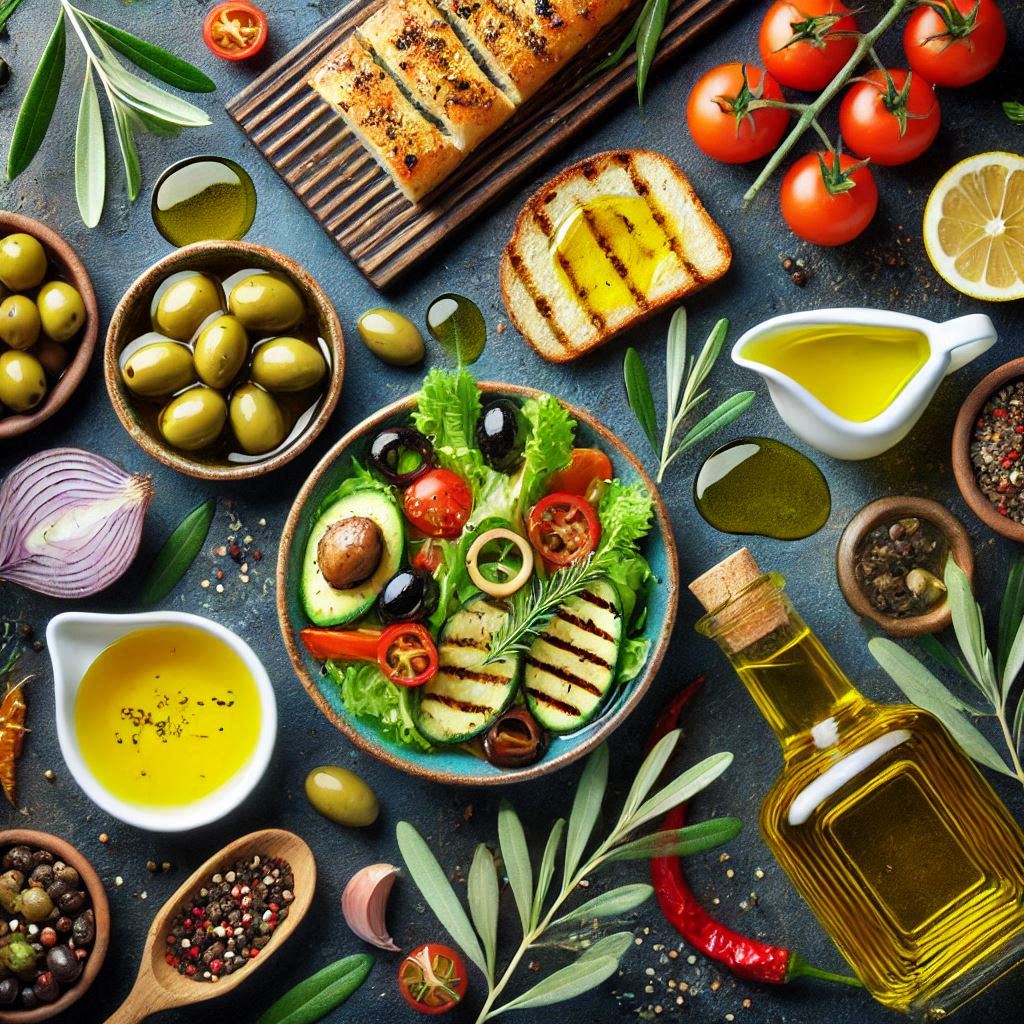Olive Oil Health Benefits: Why You Should Add It to Your Diet. Olive oil, often referred to as “green gold,” has been used for centuries not just in cooking but also for various health benefits. Though you might not drink it like fruit juice, this golden liquid extracted from olives is packed with essential nutrients and compounds that can improve your overall well-being. Here’s why you should consider adding olive oil to your daily diet:
Olive Oil Health Benefits: Why You Should Add It to Your Diet
Health Benefits of Olive Oil
Olive oil is renowned for its health benefits, largely due to its composition. The majority of the fats in olive oil are monounsaturated fatty acids (MUFAs), which help to boost “good” cholesterol (HDL) and lower “bad” cholesterol (LDL). This can reduce the risk of heart disease and improve cardiovascular health.
Additionally, olive oil is rich in anti-inflammatory and antioxidant compounds, which have been linked to reducing inflammation and oxidative stress. These benefits may help protect your arteries from plaque buildup and safeguard against chronic diseases like cancer, heart disease, and autoimmune conditions.
Types of Olive Oils
Not all olive oils are created equal. Depending on the level of processing, the nutritional quality of olive oils can vary:
- Extra Virgin Olive Oil (EVOO): This is the highest quality olive oil, as it undergoes the least processing. EVOO retains the highest levels of polyphenols and antioxidants, providing maximum health benefits. It has a robust flavor and is perfect for finishing dishes or using in salad dressings.
- Virgin Olive Oil (VOO): Slightly more processed than EVOO, VOO still retains a significant amount of polyphenols and antioxidants, although slightly less than EVOO. It has a milder flavor and can be used for cooking.
- Refined Olive Oil: This oil undergoes more processing, which results in a lighter flavor but also reduces the beneficial compounds. It is suitable for higher-temperature cooking.
- Light Olive Oil: This type is the most processed and has the mildest flavor. It’s often used for cooking but contains fewer health benefits due to the loss of polyphenols and antioxidants during processing.
Recommended Intake of Olive Oil
The 2020-2025 Dietary Guidelines for Americans suggest a daily intake of about 27 grams (approximately 2 tablespoons) of added oils for a standard 2,000-calorie diet. The actual amount can vary based on your age, intimacy, and activity level.
Ways to Incorporate Olive Oil into Your Diet
Here are some simple and tasty ways to add more olive oil to your meals and enjoy its health benefits:
- Salad Dressing: Create a quick and flavorful dressing by combining olive oil, balsamic vinegar, and mustard. This will not only elevate the taste of your salads but also provide a healthy dose of monounsaturated fats.
- Drizzle Over Roasted Vegetables: Toss your favorite vegetables with olive oil and roast them for a nutritious side dish. Olive oil enhances the flavor and adds healthy fats to your meal.
- Use It for Cooking: While EVOO is best used at lower cooking temperatures to preserve its flavor and nutritional value, more refined olive oils can be used for higher heat cooking. However, for a final burst of flavor, consider using EVOO as a finishing oil on cooked dishes.
- Add to Smoothies: You can also add a spoonful of olive oil to your smoothies. It pairs well with fruits like oranges and berries, adding a creamy texture and a boost of healthy fats.
Also Read – iPad Mini 2024 vs iPad Air 2024
Conclusion
Olive oil is much more than just a cooking ingredient; it’s a powerhouse of health benefits. By incorporating it into your daily routine, you can enjoy better heart health, reduce inflammation, and protect your body from chronic diseases. Whether used in salads, as a finishing oil, or in cooking, olive oil is a versatile and health-boosting addition to your diet.



